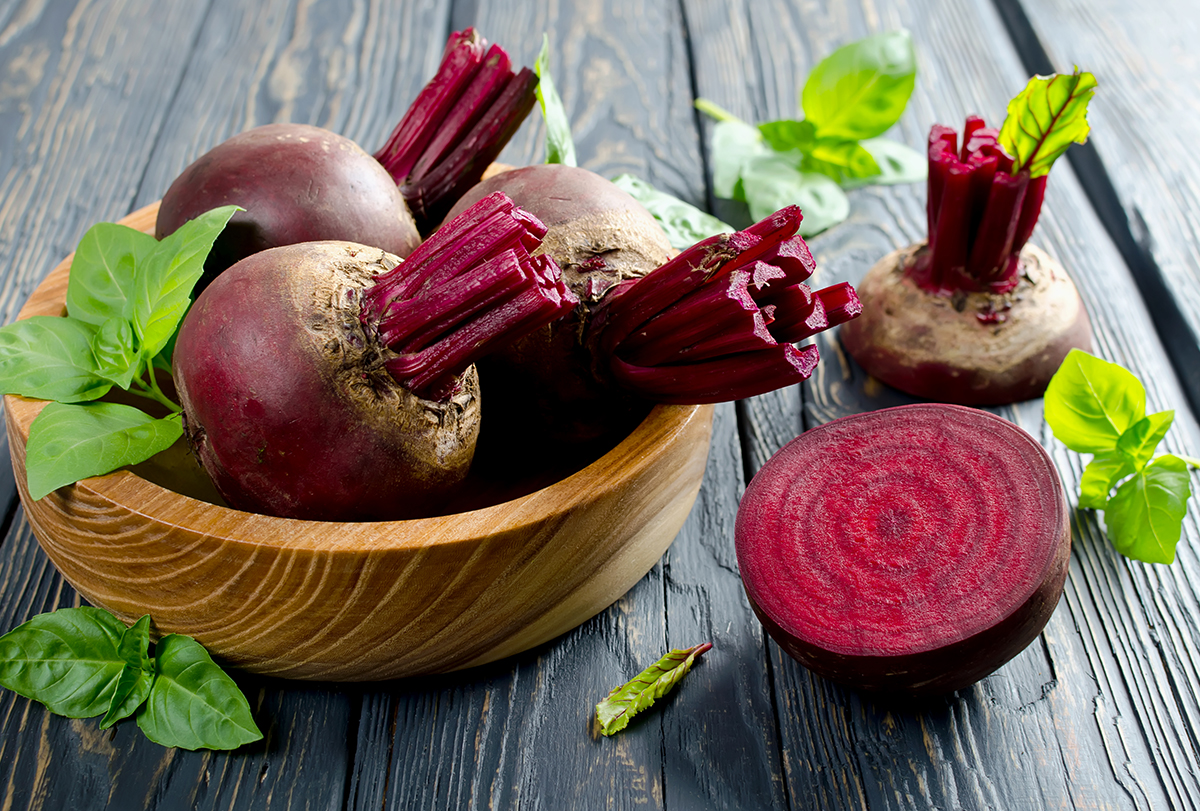Impressive Health Benefits of Beetroot
Beets boast an impressive nutritional profile.
They’re low in calories yet high in valuable vitamins and minerals. In fact, they contain a bit of almost all of the vitamins and minerals your body needs .
Here’s an overview of the nutrients found in a 3.5-ounce (100-gram) serving of boiled beetroot:
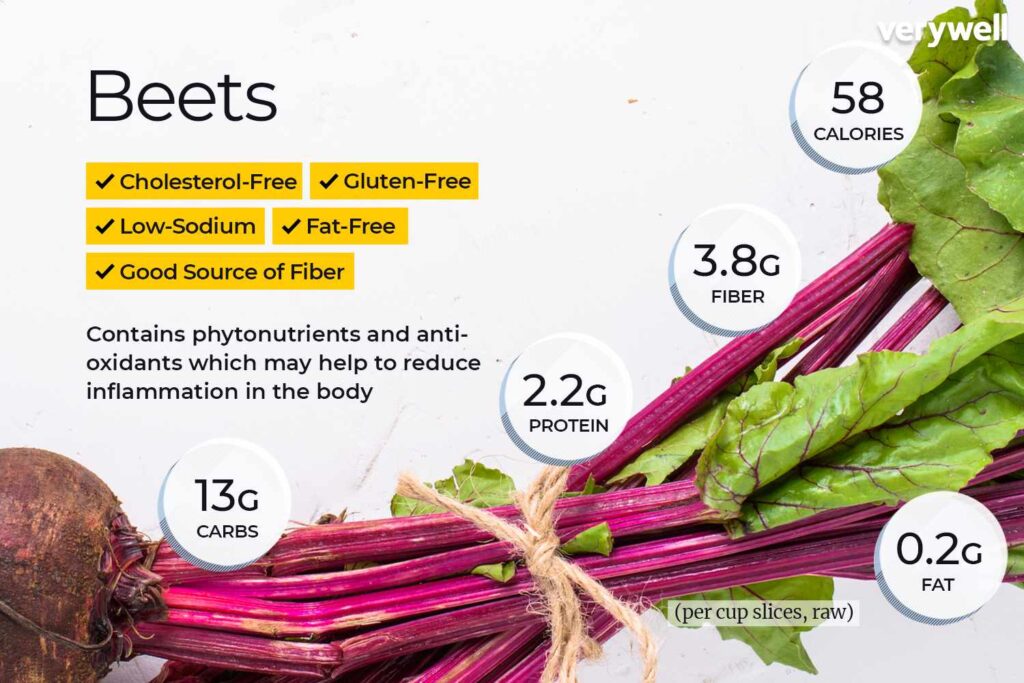
- Calories: 44
- Protein: 1.7 grams
- Fat: 0.2 grams
- Carbs: 10 grams
- Fiber: 2 grams
- Folate: 20% of the Daily Value (DV)
- Manganese: 14% of the DV
- Copper: 8% of the DV
- Potassium: 7% of the DV
- Magnesium: 6% of the DV
- Vitamin C: 4% of the DV
- Vitamin B6: 4% of the DV
- Iron: 4% of the DV
Beets are particularly rich in folate, a vitamin that plays a key role in growth, development, and heart health .
They also contain a good amount of manganese, which is involved in bone formation, nutrient metabolism, brain function, and more.
Plus, they’re high in copper, an important mineral required for energy production and the synthesis of certain neurotransmitters .
Can improve athletic performance

Several studies suggest that dietary nitrates like those found in beets may enhance athletic performance.
Nitrates appear to affect physical performance by improving the efficiency of mitochondria, which are responsible for producing energy in your cell.
According to one review, beetroot juice could enhance endurance by increasing how long it takes to become exhausted, boosting cardiorespiratory performance, and improving efficiency for athletes.
Promisingly, beet juice has also been shown to improve cycling performance and increase oxygen use by up to 20% .
It’s important to note that blood nitrate levels peak within 2–3 hours of consuming beets or their juice. Therefore, it’s best to consume them a couple of hours before training or competing to maximize their potential benefits.
Beetroot Prevents Anaemia

Many may believe that beetroot’s red colour only helps prevent anaemia. However, studies conclude that beetroot juice comprises a lot of iron and folic acid that helps in the formation of red blood cells which carries oxygen and nutrients throughout the different parts of the body to ensure healthy blood count.
It is a fact that the regeneration of RBCs is imperative to help prevent menstrual disorders in women, anaemia, and symptoms of menopause in women by having just regular beetroot juice.
May improve digestive health
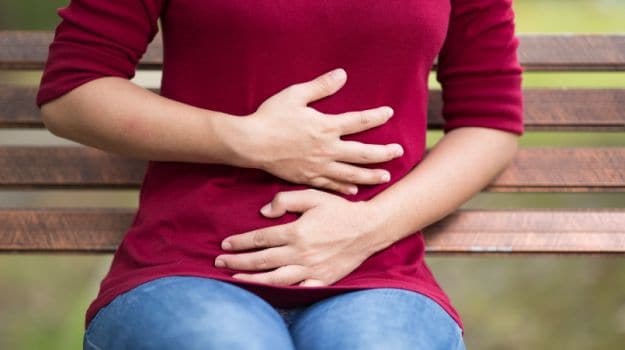
One cup of beetroot contains 3.4 grams of fiber, making beets a good fiber source.
Fiber bypasses digestion and travels to the colon, where it feeds friendly gut bacteria and adds bulk to stools.
This can promote digestive health, keep you regular, and prevent digestive conditions like constipation, inflammatory bowel disease (IBS), and diverticulitis .
Moreover, fiber has been linked to a reduced risk of chronic diseases, including colon cancer, heart disease, and type 2 diabetes.
Delicious and easy to include in your diet

Beets are not only nutritious but also incredibly delicious and easy to incorporate into your diet.
You can juice, roast, steam, or pickle them. For a convenient option, you can purchase them precooked and canned. You can even enjoy them raw, either sliced thinly or grated.
Choose beets that feel heavy for their size with fresh, unwilted green leafy tops still attached, if possible.
Because dietary nitrates are water-soluble, it’s best to avoid boiling beets if you’d like to maximize their nitrate content.
Here are some delicious and interesting ways to add more beets to your diet:
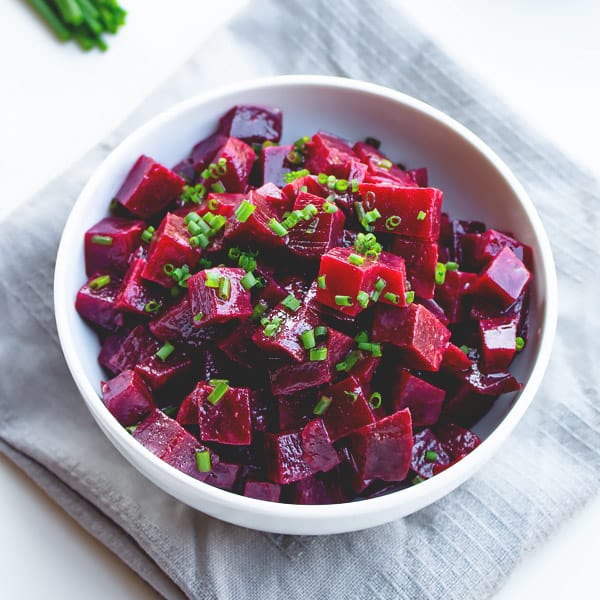
- Salad. Grated beets make a flavorful and colorful addition to coleslaw or other salads.
- Dip. Beets blended with Greek yogurt and fresh garlic make a delicious, healthy, and colorful dip.
- Juice. Fresh beetroot juice is typically better than store-bought versions, which can be high in added sugar and contain only a small amount of beets.
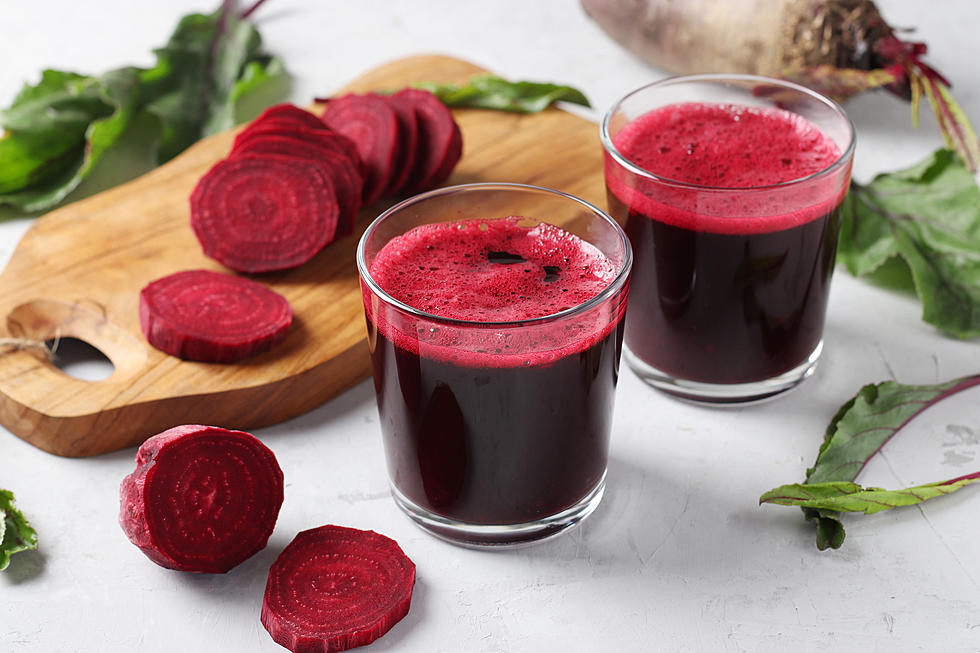
- Leaves. You can cook and enjoy fresh beet leaves similarly to how you’d use spinach.
- Roasted. Wedge beetroots and toss them with a little olive oil, salt, pepper, and herbs or spices of your choice. Then, roast them in a 400°F (205°C) oven for 15–20 minutes until they’re tender.
Beetroot Act as a Natural Viagra
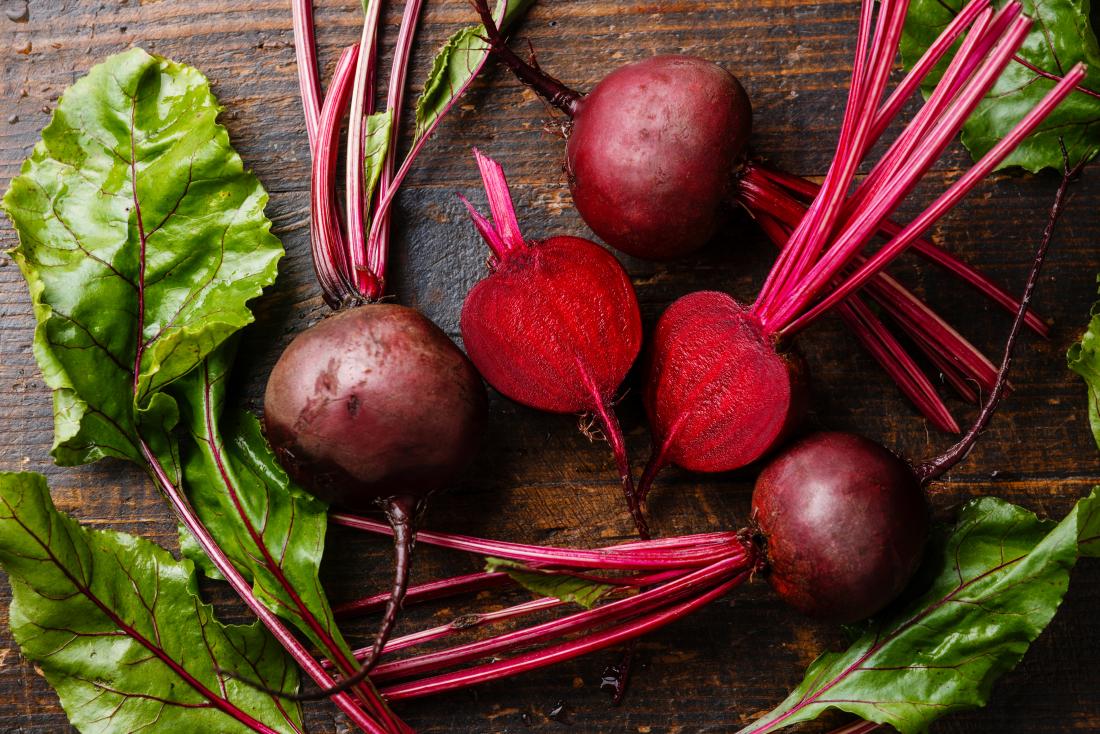
The link between using beetroot as a natural Viagra is not a recent discovery. It came from the ancient Roman time when they first use red beets as a folk remedy to treat erectile dysfunction and impotence as an aphrodisiac.
And till today, beetroot juice has been used directly to benefit women’s and men’s libido. Research has confirmed that beetroot juice contributes to treating this because it is high in nitrates.
The nitric oxide serves as a vasodilator to open up the blood vessels so the pressure can be maintained in the corpus cavernosum (an erectile tissue). So when the next time an erection occurs, the tissue engorged with blood will trigger a strong erection.
Beetroot Helps in Detoxification

Beets naturally detoxify your body from harmful toxins with the help of a group of phytonutrients called betalains. Betalains present in beetroot purify the blood, skin, and liver and boost the functionality of the body in a great way.
It also protects the liver from oxidative damage and inflammation, all while amplifying its natural detoxification enzymes. So to kick-start your metabolism and provide powerful antioxidant, anti-inflammatory, and detoxification properties, beetroot is a powerful cleanser while being highly nutritious at the same time.
2 Healthy Recipes for Beetroots
1. Beetroot shots Recipe:
Beautiful to look at and yummy to taste, these beetroot shots are made with fewer ingredients like spinach, ginger, and lemon juice to make it stand out with its contrasting bright pink colour which is sure to win hearts. Try it for your summer drink!
Ingredients needed:
- 2 medium beetroots, peeled and roughly chopped
- 8-10 leaves of spinach
- small piece ginger
- 1 green chilli
- 1 tbsp lemon juice
- Pink salt
Preparation Steps to be followed:
- In a blender, add all ingredients and 2½ cups of water.
- Blend to a smooth consistency.
- Pour in shot glasses and serve
2. BeetRoot Chilla:
Ingredients needed:
- 1 cup besan or gram flour
- ¾ cup roasted oats flour
- Pinch of asafoetida
- 3/4 tsp carom seeds
- ½ tsp turmeric powder
- ½ cup coriander leaves
- sea salt to taste
- 2 beetroots (grated or pureed)
- 1 tsp flaxseed powder
- 1 tsp Desi Ghee for cooking
Preparation Steps to be followed:
- Mix all ingredients in a bowl except ghee and mix well until smooth consistency.
- Heat a Tawa and grease with ghee.
- Pour a ladle of batter and spread like a crepe
- Cook for 2-3 minutes or until lightly brown and flip. Cook both sides until well cooked and serve hot.
Frequently Asked Questions (FAQs)
1. Does the beet cause blood sugar spikes?
A. No. Beetroots are rich in phytonutrients that have been shown to have a regulating effect on glucose and insulin.
2. What are the side effects of eating beetroot?
A. Beet is safe for most people in controlled portions. Beets sometimes make urine or stools pink or red which is thought to be mostly harmless in most cases. Eating too many beets might make kidney disease worse and cause low calcium levels.
3. How much beetroot juice or supplement I should take while I work out?
A. Beetroot juice 200 ml an hour before exercise or Baked/boiled beetroot (200 grams) taken 75 minutes before exercise is the recommended dosage. Beetroot concentrate 50 mg twice daily for about 6 days has been used for better workout performance. Furthermore, 200 ml of fresh beetroot juice post a heavy workout is great for muscle recovery and reduces soreness.
4. Do I need to worry about red beetroot pigments found in urine or stool after eating?
A: Red beetroot pigments in urine or stool are called beeturia, which is thought to be mostly harmless and nothing to lose your sleepover.
5. What happens if you eat beetroot every day?
A: Beetroot is high in nitrates, betalain pigments, and fibre and a great source of various vitamins and minerals with established use in blood circulation, menstruation, and hepatobiliary disorders. The significance of dietary nitrates found in beetroot is effective in the treatment of hypertension by contributing to endothelial nitric oxide production. It acts as a vasodilator, thereby increasing the perfusion of blood in tissues and helping in better erection and lowering the rate of cholesterol build-up in the arteries, which may cause a heart attack. This natural detoxifier promotes brain function and helps fight constipation.
6. Is beetroot high in sugar?
A: No beets are not high in sugar content and in fact help in lowering the glucose levels in the body.
7. What are the side effects of beetroot?
A: Beetroot consumption can change the consistency and colour of your stool and urine. They may get a pinkish pigmentation which is harmless in most cases.
8. Who should not take beetroot?
A: Beets are a known remedy to lower blood pressure. Thus people who suffer from low blood pressure should avoid beetroot as it can worsen their condition. Additionally, people suffering from gallbladder issues or kidney stones should also omit beetroot from their diet as the oxalate in beets can increase the complications.
9. Is beetroot good for your liver?
A: Yes, beetroot is very beneficial for your liver. It stimulates the production of the natural detoxifying enzymes of the liver, strengthens it to flush away toxins from the body and helps protect it from damage and inflammation. It also prevents the deposition of fat in the liver preventing the fatty liver condition.
10. How many beets should I eat a day?
A: 1 full beetroot or a cup of beetroot juice every day is enough to reap its health benefits.
11. Is beetroot good for diabetes?
A: Yes, beetroot is a non-starchy vegetable rich in phytochemicals that effectively regulate the body’s insulin and glucose levels thus keeping diabetes in check. Furthermore, the nitrates present in abundance in beets reduce insulin resistance.
12. Can diabetics drink beet juice?
A: Yes, given the low glycemic score of beetroot, its juice is a perfectly healthy beverage for diabetics.
13. Is beetroot good for sleep?
A: Beetroots are rich in calcium and magnesium. The deficiency of these two minerals is one of the reasons for disruptive sleep patterns. Thus, beetroot juice can improve sleep quality.
14. Can beets damage your kidneys?
A: Yes, eating too many beets might make kidney disease worse and may even lead to the accumulation of kidney stones in people with a higher risk of this condition.
15. Does beets make you poop?
A: Yes, beetroot is high in fibre. It is highly beneficial in regulating your digestive processes and easing the bowel movement to offer quick relief from constipation. Drinking beet juice or having boiled beets can be a great remedy for a constipated stomach. Betalains present in beetroot is an agent thought to help maintain good overall digestive health.

